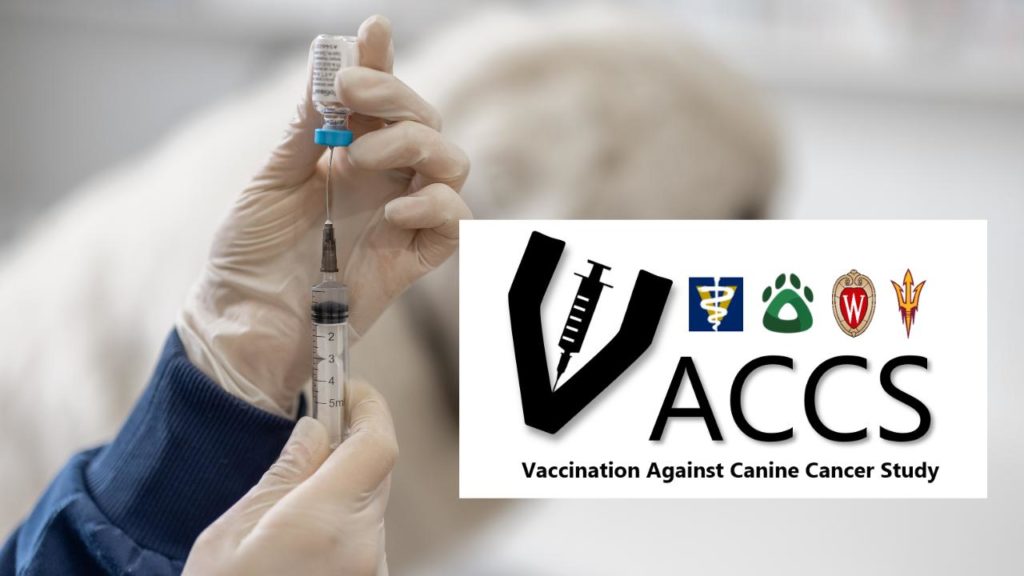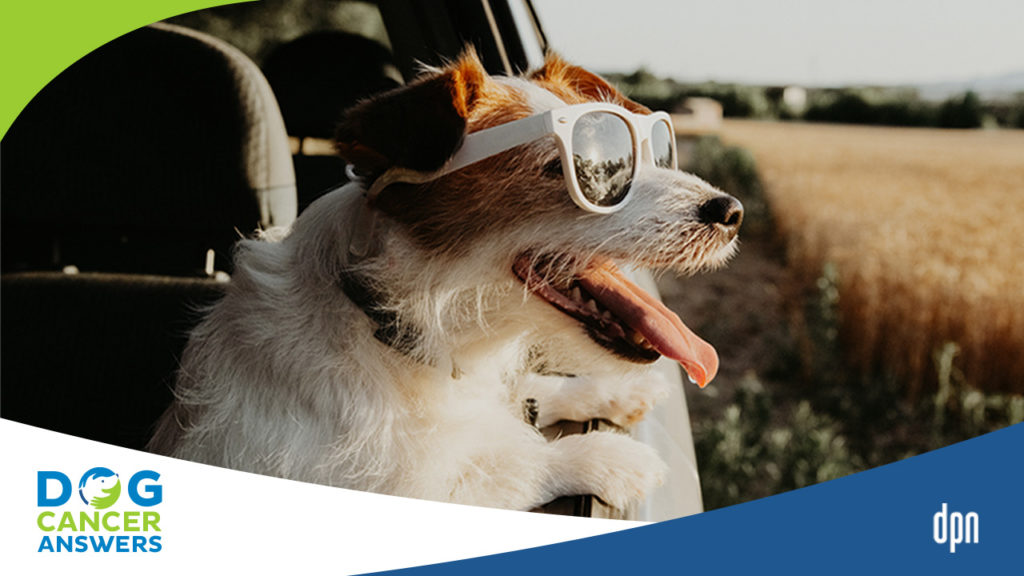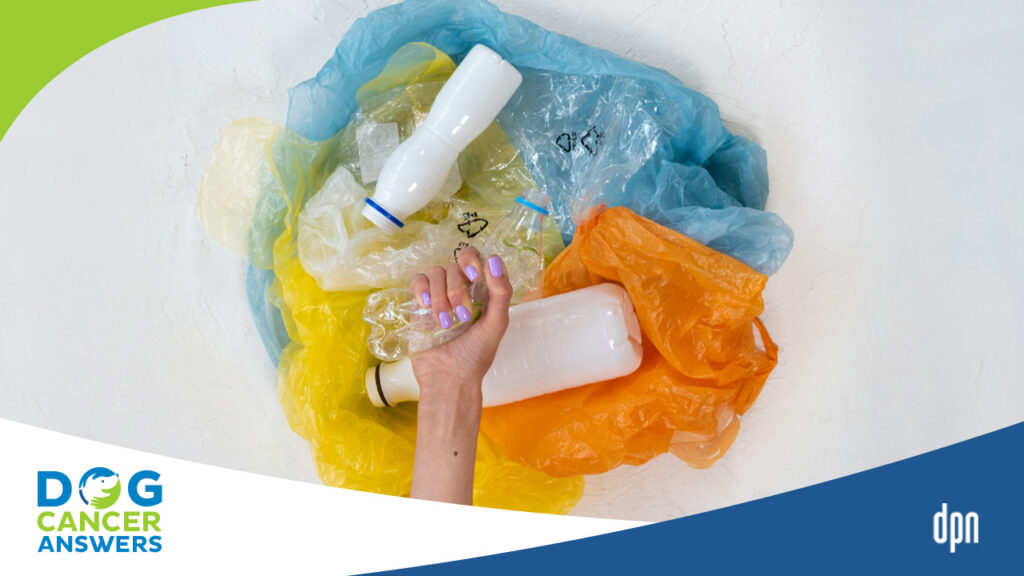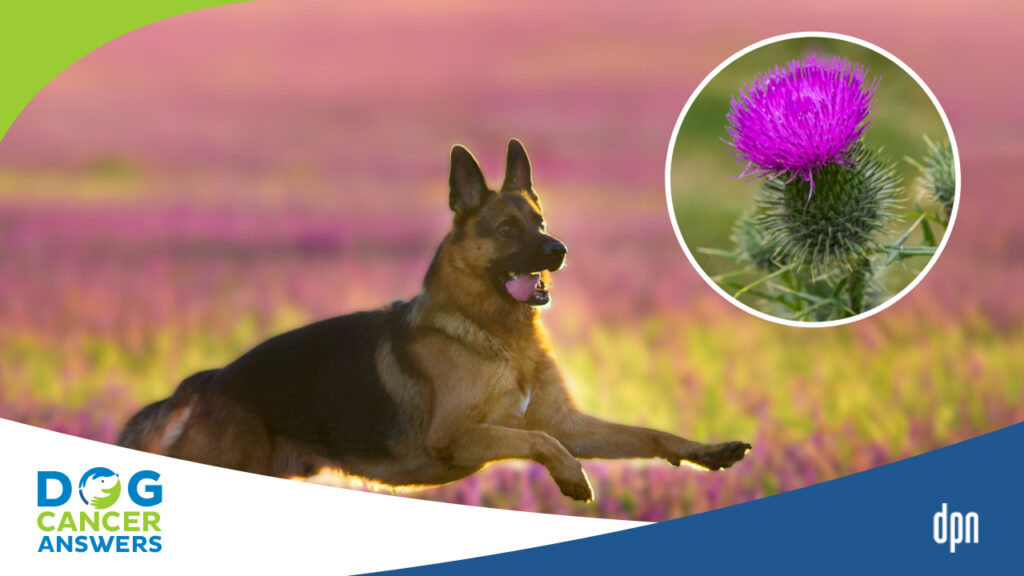>> Announcer: Welcome to Dog Cancer Answers, where we help you help your dog with cancer. Here’s your host, James Jacobson.
>> James Jacobson: Welcome everybody to today’s question and answer show. Today, we have a caller named Alicia who called into our listener line, and she’s asking about vaccine studies to prevent dog cancer.
To answer that question, we are delighted to have Dr. Demian Dressler with us. Dr. Dressler is a graduate of the Cornell School of Veterinary Medicine, and he’s in private practice here in Maui, Hawaii. He’s also the co-author of the bestselling book, “The Dog Cancer Survival Guide,” along with Dr. Susan Ettinger. And this episode is sponsored by “The Dog Cancer Survival Guide.” You can check out the book at this website, https://DogCancerBook.com. And now let’s hear Alicia’s question and Dr. Dressler’s take on vaccine trials.
>> Alicia: Good morning. My name is Alicia and I’m calling from Denver, Colorado. My question is, if you have heard anything about the vaccine trials that are currently starting, that are intended to prevent dog cancer. I have an eight-year-old Scottie and I am considering putting her into this clinical trial because I had a Scottie previously that had cancer and we had to treat him for five years. I was just wondering if you know anything about this vaccine, thank you very much.
>> Dr. Demian Dressler: Hi, Alicia, so, interesting question. This is kind of — the media does a disservice here because it gets people’s hopes up prematurely — so yeah, there is a clinical trial that actually just opened its doors. That’s called the VACCS trial, V-A-C-C-S. I think the primary investigator is at Arizona State. But the actual research is being done at a few different vet schools across the country. And fortuitously, one of them is Colorado State University, which is not too far away from where you are as it so happens. And then I think also at Wisconsin and then Davis, maybe.
>> James Jacobson: UC Davis, yeah.
>> Dr. Demian Dressler: Yeah. So it’s new, the theory behind it’s really cool and it’s not gonna be done for five years. And then there’s going to be many years until a pharmaceutical is developed out of it. And one of the problems that we see here is that people start to get their hopes up based on media and it’s like way, way, way premature, because the purpose of a research trial to see does this thing work or does it not work in what cases does it work and what are the adverse side effects and all that. So it’s an idea and it’s grounded in good science and, you know, I love the science behind it, but unfortunately for all of us, it’s going to be a long ways out before the actual product is made.
Backing up a little bit. You did say something that caught my attention a little bit. And that is that you have a Scottie dog, eight-year-old dog. So a couple of things to think about: one, in “The Dog Cancer Survival Guide,” there is a section on cancer prevention. It’s towards the back. It’s a little brief, but it does give you some basic information there.
Secondly, we like to do things to– aside from what you’re discussing, which is early to use the vaccine because it doesn’t exist yet — but carbohydrate restriction are good things to do. We can help support normal apoptosis levels with dietary apoptogens. Those are things that could be found in EverPup or in Nutrocept. These are good things to do. We can do immune support. We can read a little bit about spaying and neutering and the effects of cancer there. We can try to minimize vaccines and instead do blood testing to see if those vaccines are needed, which are called titer testing. So there are different things that can be, be done.
The Scotties do have, as you probably know, a genetic tendency toward certain cancers, particularly transitional cell carcinoma of the bladder. But nonetheless, those are some other steps that one can think about to try to do everything we can to minimize the development of cancer in our pets.
Oh, and I forgot, don’t forget to keep your dog lean because obesity is also a risk factor.
>> James Jacobson: But clearly you don’t even know if the vaccine is going to come to market and it’s many years off perhaps outside of the life expectancy of, of a Scottie. But what do you think about registering your dog or enrolling your dog in one of these trials? Because you don’t know if you’re going to get the placebo or the actual product, right?
>> Dr. Demian Dressler: Well, there’s that to contend with and then there’s side effects to contend with potentially. That’s a really, really, really tough question. I myself, maybe I’m just too sensitive or too selfish, but the way that I perceive my relationship with my pets is I don’t think that I would necessarily, and we’ve got to remember too, that dogs occupy this dual position on the one hand, as family members.
And then on the other hand, sort of, and I hate to say it, but legally they’re treated as objects, like bicycles or something.
>> James Jacobson: Property
>> Dr. Demian Dressler: Yeah. Property. So it gets really confusing ethically on this. I certainly would like to see whether or not this vaccine works, cause it could be potentially life changing for dogs and people too, by the way.
But if I were to use my own selfish desires to guide my decision making, I probably would have dogs in shelters being the ones that were going to be used for this particular trial. But, uh, you know, that may be because I’m not quite altruistic enough.
>> James Jacobson: Thank you Dr. Dressler. And thank you Alicia, for that question, you know, it’s tempting to get prematurely excited about something like a vaccine for cancer.
We all want a world with that vaccine, but it’s also okay to acknowledge the risks to our loved ones. Entering your dog in a new study is a highly personal decision. So weigh your values and the potential costs carefully. In the meantime, please keep in mind other ways to boost your dog’s health and immunity. Sometimes fighting cancer entails supporting your dog with things like diet and supplements.
We’ve included links to both the veterinary vaccine study and the supplements in the show notes to today’s episode. And you can find those notes in your podcast app or on our website at DogCancerAnswers.com. That’s also where you can listen to or download it our entire back catalog of episodes. It is the best way to get the information that you need to help optimize your dog’s life quality and longevity.
Just a couple of things to wrap up today’s show. Don’t forget to hit the subscribe button or write a review, tell a friend and tell your veterinarian about this program. It’s how we grow. And it is the best way that you can help support us so that we can support as many dog lovers as possible through what we all know can be a very difficult time.
Those touch tones remind me to remind you to call our listener line just like Alicia did. And leave your question about dog cancer for one of our veterinarians to answer on a future episode, the number to call 24 hours a day is (808) 868-3200. That’s (808) 868-3200. Or visit our website at DogCancerAnswers.com.
Um, and finally we’d like to thank our sponsor, “The Dog Cancer Survival Guide” book by Dr. Demian Dressler and Dr. Susan Ettinger. It’s available wherever fine books are sold both online and in physical bookstores. And if you’d like to help support this show, we’ll get the book right away, direct from the publisher.
You can get the paperback with free shipping anywhere in the USA or the ebook. And the ebook is just $9.95. To get either the ebook or the paperback go to this website, dogcancerbook.com. And because you are a listener to this show, if you use the promo code “podcast,” you can save 10%. The website again: dogcancerbook.com and use that promo code “podcast” for 10% off. The website: www.dogcancerbook.com.
I’d like to thank Dr. Demian Dressler for being our guest today. If you’d like to reach out to him, his website is vetinkihei – that’s Vet in K-I-H-EI.com. Also, thanks to Alicia for her heartfelt question. Until next time, I’m James Jacobson. From all of us here at Dog Cancer Answers and Dog Podcast Network, I wish you and your dog, a warm Aloha.
>> Announcer: Thank you for listening to Dog Cancer Answers. If you’d like to connect, please visit our website at DogCancerAnswers.com or call our Listener Line at 808-868-3200.
>> Announcer: And here’s a friendly reminder that you probably already know: this podcast is provided for informational and educational purposes only. It’s not meant to take the place of the advice you receive from your dog’s veterinarian. Only veterinarians who examine your dog can give you veterinary advice or diagnose your dog’s medical condition. Your reliance on the information you hear on this podcast is solely at your own risk. If your dog has a specific health problem, contact your veterinarian.
Also, please keep in mind that veterinary information can change rapidly. Therefore, some information may be out of date.
Dog Cancer Answers is a presentation of Maui Media in association with Dog Podcast Network.








